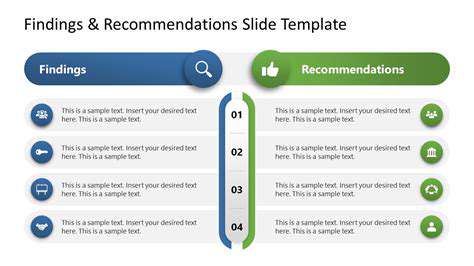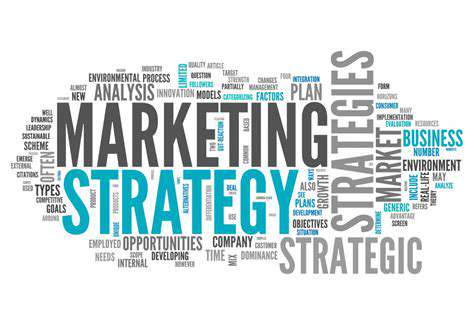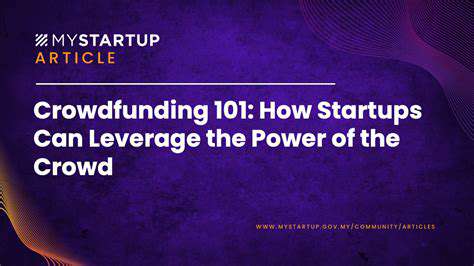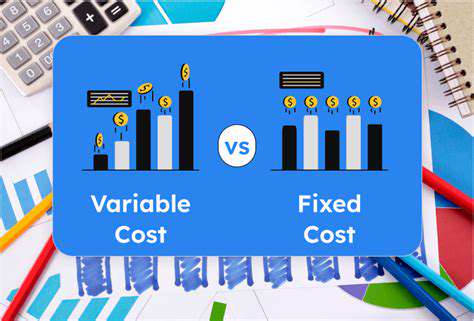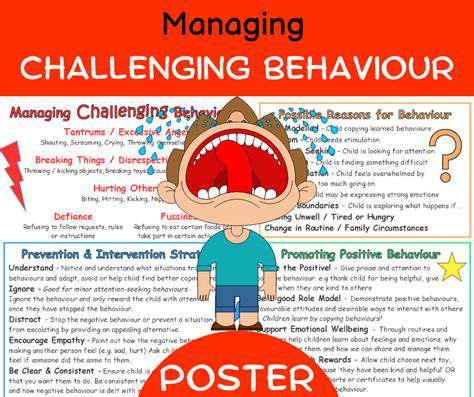Guide to Informational Interviews
Understanding Your Goals
Before reaching out to potential contacts, clearly define your informational interview goals. What specific information are you seeking? Are you hoping to learn about a particular industry, a specific career path, or the skills required for a certain role? Having a well-defined purpose will help you frame your questions and keep the conversation focused and productive. This pre-planning is crucial for ensuring that the interview is a valuable experience for both you and the person you're speaking with. Knowing what you want to gain from the interaction will help you tailor your approach and extract the most relevant insights.
Consider the types of questions you want to ask. Do you have any specific companies or individuals in mind? Knowing the context and specific areas of interest will enable you to probe more deeply into the subject matter. This proactive preparation will ensure that you're not just passively absorbing information, but actively seeking out the insights that best align with your professional aspirations. This includes considering the background and experiences you want to learn from, and how they might relate to your future career path. This groundwork is the foundation for a successful informational interview.
Researching Your Contact
Thorough research is essential for a successful informational interview. Look beyond their job title and company description; delve into their professional history, publications, presentations, and any online presence they might have. Understanding their background and areas of expertise will help you formulate thoughtful questions that demonstrate your genuine interest and allow for a more meaningful conversation. This preparation ensures that you're not just asking generic questions, but rather demonstrating a specific knowledge of their work and career trajectory. Knowing their accomplishments and experiences will help you connect with them on a deeper level.
Identify common connections. See if you have mutual acquaintances or shared interests. Leveraging these connections can make the initial contact smoother and more natural. This shows you've put in the effort to find someone who can offer helpful insights. This process of networking and relationship building is vital for navigating the professional landscape, and a well-researched contact list will be a valuable asset in your career journey. Having this information readily available will help you personalize your approach and demonstrate that you've taken the time to understand their background and contributions.
Crafting Your Approach
Compose a concise and compelling email or introductory message outlining your goals and how you plan to use the interviewee's expertise to achieve them. Demonstrate your understanding of their work and career path. Avoid being overly demanding or presumptuous; instead, focus on highlighting your respect for their time and experience. This initial outreach sets the tone for the entire conversation, and a well-structured message will increase the likelihood of a positive response. Being respectful of their time is important, and ensuring you understand the interviewee's available time is key to a productive interaction.
Plan your questions carefully. Prepare open-ended questions that encourage detailed responses. Think about the specific insights you're seeking and structure your inquiries accordingly. Avoid overly broad or generic questions, instead aiming for questions that demonstrate your genuine interest in their career journey and the knowledge they can share. This thoughtful preparation will allow for a more fulfilling discussion and will enable you to gain valuable insights into the professional field you are interested in. This proactive planning will maximize your learning potential from the interview.
Follow up promptly and professionally after the interview. Send a thank-you note expressing your appreciation for their time and insights. Summarize key takeaways and reiterate your interest in their advice. This final touch ensures that your interactions are always positive and professional. It shows your appreciation for their guidance and demonstrates your professionalism in a crucial step of the informational interview process. This is a crucial step to maintain a positive professional network.

Following Up and Building Your Network: Crucial Steps for Success

Networking Strategies for Long-Term Success
Effective networking isn't just about collecting business cards; it's a crucial element of building lasting professional relationships. Developing a strategy that prioritizes genuine connections over superficial interactions is key to long-term success. This involves actively listening to others, understanding their needs, and offering genuine support, rather than just seeking opportunities for yourself.
It's about understanding that building a strong network takes time and consistent effort. Establishing and nurturing these relationships requires proactive engagement and mutual benefit, ensuring that both parties gain something valuable from the interaction.
Maintaining Contact and Cultivating Relationships
Staying in touch with your network is essential for maintaining those valuable connections. Regular communication, whether through brief emails, LinkedIn messages, or phone calls, helps keep you top-of-mind and strengthens the bonds you've formed. This proactive approach fosters a sense of continued engagement and mutual support within your network.
Remember to tailor your communication to the individual. A brief check-in about their recent projects or a thoughtful note about something they shared can go a long way in maintaining a meaningful connection.
Leveraging Your Network for Opportunities
Your network is a valuable resource for uncovering opportunities. Actively seeking out opportunities within your network and being open to recommendations can lead to unexpected professional advancements. This could involve asking for referrals, seeking advice on projects, or even attending industry events your network members are involved in.
Identifying Potential Mentors and Advisors
Within your network, identify individuals who possess the expertise and experience you admire. Reaching out to them to learn from their experiences and gain valuable insights can be incredibly beneficial in your professional journey. A mentor or advisor can provide guidance, support, and perspective that can help you navigate challenges and make informed decisions.
Don't be afraid to ask for their time and wisdom; they are often eager to share their knowledge and experience to help others grow.
Exploring New Connections and Expanding Your Reach
Continuously expand your network by attending industry events, joining professional organizations, and engaging in online communities relevant to your field. This proactive approach helps you connect with a wider range of individuals and discover new perspectives. Expanding your network is a continuous process that requires ongoing effort and engagement with various professional communities.
Building a Sustainable Network of Support
Building a sustainable network of support means nurturing relationships over time. This involves recognizing that relationships require consistent effort and proactive engagement. It's about being a reliable and supportive presence in the lives of your connections.
This commitment to building and sustaining meaningful connections will ultimately lead to a robust and reliable network of support that you can rely on during your professional journey.
Maximizing Your ROI: Turning Information into Opportunities
Understanding the Value of Information
In today's data-driven world, information is more valuable than ever. It's the lifeblood of businesses, driving strategic decisions, improving operational efficiency, and ultimately boosting profitability. Understanding the intrinsic value of information—its potential to unlock opportunities and generate returns—is crucial for any organization aiming to thrive in the competitive landscape. This involves recognizing the diverse forms information can take, from market trends to customer preferences to internal operational data.
Information isn't just data; it's the processed, organized, and interpreted data that enables informed action. Transforming raw data into actionable insights is the key to unlocking its true potential and driving positive outcomes.
Identifying Key Information Sources
To maximize your ROI, you need to identify and leverage the right information sources. This involves scrutinizing various internal and external data streams. Internal sources include sales figures, customer service interactions, and employee feedback systems. External sources could encompass market research reports, competitor analysis, and industry news articles. Each source provides a unique perspective, and by combining these perspectives, you develop a holistic understanding of your business and the environment in which it operates.
Analyzing Information for Actionable Insights
Raw data is meaningless without proper analysis. Transforming data into actionable insights requires careful consideration and interpretation. Employing analytical tools and techniques, like data visualization and statistical modeling, can reveal patterns and trends hidden within the data. Identifying these patterns allows you to anticipate future market shifts, predict customer behavior, and optimize internal processes.
Developing Strategies Based on Insights
Once you've extracted actionable insights, you can use them to develop targeted strategies. These strategies should be specific, measurable, achievable, relevant, and time-bound (SMART). This ensures that your efforts are focused on achieving concrete objectives and maximizing your return on investment. A well-defined strategy, grounded in accurate data analysis, is the cornerstone of successful initiatives.
Implementing Strategies and Measuring Results
Implementing your strategies is the crucial next step. This involves allocating resources, training personnel, and creating a clear communication plan. The success of your strategies hinges on effective execution. Monitoring and measuring your results is essential to determine the effectiveness of your initiatives. This involves tracking key performance indicators (KPIs) and making adjustments as needed to optimize your approach.
Continuous Improvement and Adaptation
The business landscape is constantly evolving, and so too should your strategies. Information is dynamic, and staying ahead requires a commitment to continuous improvement and adaptation. Regularly reviewing your strategies, re-evaluating your information sources, and adapting to emerging trends are critical for long-term success. Keeping pace with the changing market and adapting your strategies accordingly will ensure you remain competitive and maximize your ROI in the long run.
Read more about Guide to Informational Interviews
Hot Recommendations
- How to Stay Productive While Working Remotely
- Tips for Managing Conflict with Coworkers
- Entrance & Certification Exams (升学考试)
- How to Improve Your Storytelling Skills (Speaking)
- How to Find Profitable Side Hustles
- Tips for Preparing for the TOEFL iBT Home Edition
- Guide to Switching Careers from [Industry A] to [Industry B]
- How to Run an Effective Hybrid Meeting
- Tips for Marketing Your Side Hustle on Instagram



